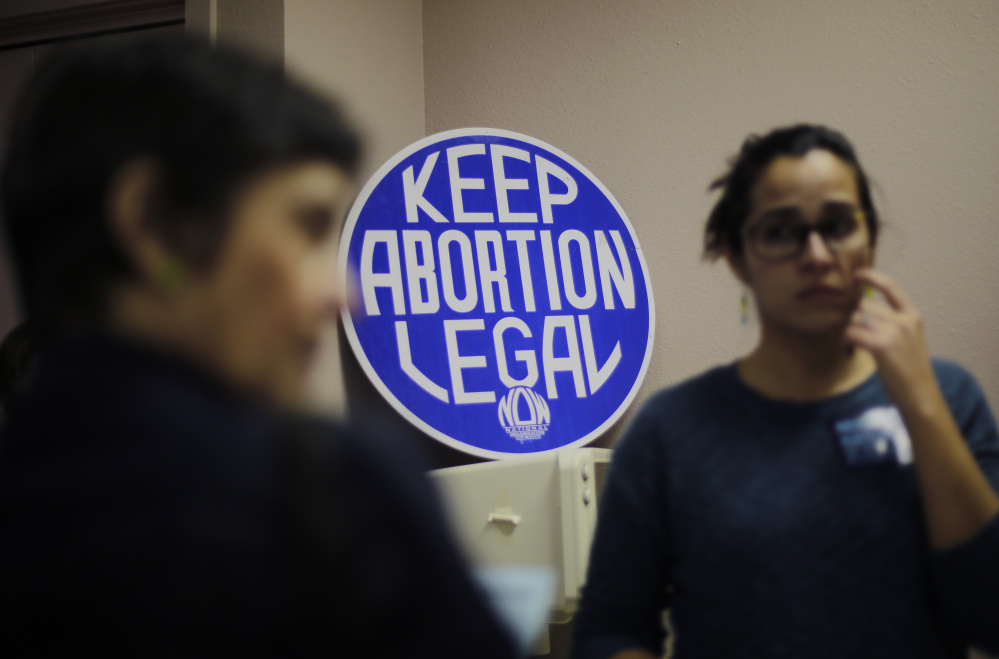WASHINGTON — In a vast region of Texas that is “larger than California,” the Supreme Court was recently told, no doctors or health clinics would be licensed to perform abortions if the state is allowed to enforce stringent new medical regulations.
So, are these regulations a valid means to “increase the health and safety” of abortion patients, as the state maintains, or an unconstitutional scheme to deprive millions of Texas women access to legal abortion?
That is the question before the Supreme Court on Wednesday in a case that may be reshaped by the death of Antonin Scalia.
Justice Scalia was the court’s fiercest critic of the Roe vs. Wade ruling that established a right to abortion. Without him, it is highly doubtful the Texas case will yield a broad conservative ruling that gives states a green light to adopt ever-stricter restrictions on abortion.
The outcome still turns on Justice Anthony M. Kennedy, who has been both a steady critic of abortion and a defender of the principle that women have a right to decide for themselves whether to end an early pregnancy.
In June, Kennedy joined with the court’s four liberals to bar Texas from fully enforcing the law while the justices considered an appeal from abortion-rights advocates. But in the court’s last abortion ruling, Kennedy wrote the 5-4 opinion in 2007 that upheld a federal ban on so-called partial-birth abortions.
The two key regulations at issue now require doctors who perform abortions to have “admitting privileges” at a local hospital and to work in clinics that meet the standards of an outpatient surgical center.
Prior to 2013, Texas carefully regulated and inspected abortion providers. Doctors needed transfer agreements with hospitals if a medical emergency arose, and clinics that performed abortions after 16 weeks of a pregnancy had to meet the standards of a surgical center.
The new state law extended both regulations so that, for example, a woman seeking an early abortion using medication must go to a surgical center to take the pills.
And for women in western Texas who seek an abortion, that could mean driving 300 miles to a clinic in Fort Worth or Dallas, said Amy Hagstrom Miller, the president of Whole Woman’s Health who led the suit challenging the law.
And because the law includes mandatory waiting periods, the woman would have to spend several days in Fort Worth. “This is not about safety,” Miller said.
Medical experts, including the American Medical Association, urged the court to reject the Texas regulations as unneeded and potentially harmful.
Early abortions “are one of the safest medical procedures performed in the United States,” they told the court.
If Kennedy votes with the three conservative justices to uphold the Texas law, the court would likely be split 4-4 and unable to issue an opinion.
If so, the court may issue a one-line order that affirms on a tie vote the ruling of the 5th U.S. Circuit Court of Appeals, which upheld the Texas law. Such a move does not set a precedent, but it would allow Texas to enforce its law.
Send questions/comments to the editors.



Success. Please wait for the page to reload. If the page does not reload within 5 seconds, please refresh the page.
Enter your email and password to access comments.
Hi, to comment on stories you must . This profile is in addition to your subscription and website login.
Already have a commenting profile? .
Invalid username/password.
Please check your email to confirm and complete your registration.
Only subscribers are eligible to post comments. Please subscribe or login first for digital access. Here’s why.
Use the form below to reset your password. When you've submitted your account email, we will send an email with a reset code.